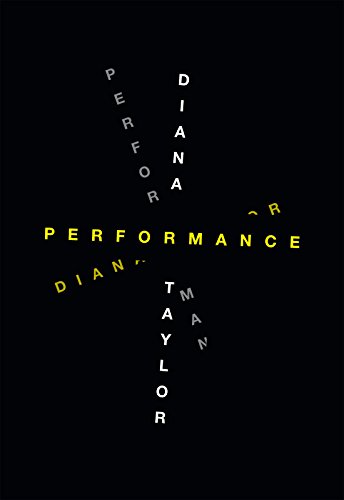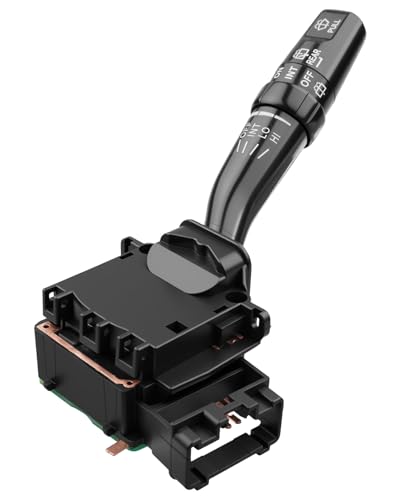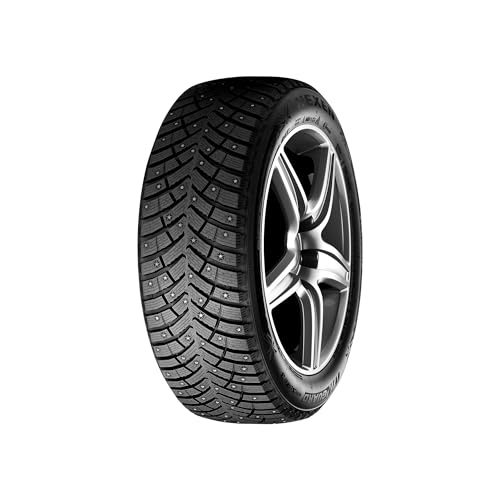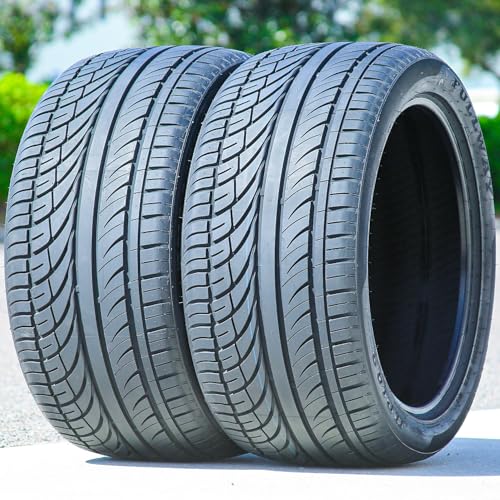There’s a familiar dilemma every enthusiast driver faces. You’ve invested in a vehicle you love, whether it’s a powerful SUV, a sporty crossover, or a classic muscle car, and the time has come for new rubber. You crave the sharp steering response, the confident grip in the corners, and the stability at speed that only a performance tire can provide. But a quick search reveals a landscape of eye-watering prices from the big-name brands. Suddenly, you’re caught between compromising on performance with a generic touring tire or stretching your budget to its breaking point. It was during this exact predicament, while looking for a capable set of tires for our project crossover that wouldn’t consume the entire modification budget, that we began our search for a value-oriented performance option. The challenge is sifting through the noise to find a tire that delivers genuine performance without critical flaws, a task that’s far more complex than just comparing prices.
- Treadlife: N/A
- Tire Only
What to Consider Before Buying a Performance Tire
A performance tire is more than just an item; it’s a key solution for unlocking your vehicle’s true handling potential. Unlike standard passenger or touring tires, which prioritize comfort and longevity above all else, performance tires are engineered with a singular focus: maximizing grip and driver feedback. They achieve this through specialized rubber compounds that remain pliable at higher temperatures, stiffer sidewalls that reduce flex during aggressive cornering, and sophisticated tread patterns designed to put more rubber on the road. The main benefit is a tangible connection to the driving experience—quicker turn-in, higher cornering limits, and shorter braking distances. This translates not only to a more enjoyable drive on a winding road but also to a greater margin of safety in emergency maneuvers.
The ideal customer for this type of product is someone facing the need to replace worn-out original equipment (OE) performance tires or looking to upgrade from a less aggressive setup on their daily driver. This driver values a spirited driving feel and understands that there’s often a trade-off in terms of tread life and absolute quietness. While it might not be suitable for those who prioritize a cloud-like ride and getting 80,000 miles out of a set, for the enthusiast on a budget, a tire like the Accelera PHI (T) 255/40 ZR20 101Y XL presents an intriguing proposition. Those seeking maximum comfort or longevity might consider a grand touring tire instead, which balances performance with a much greater emphasis on ride quality and treadwear.
Before investing, consider these crucial points in detail:
- Tire Specifications & Vehicle Fitment: This is the absolute first step. You must ensure the tire size (255/40R20), load index (101), and speed rating (Y) match your vehicle’s requirements. The 101 load index signifies a capacity of 1820 pounds per tire, and the “XL” means it’s an extra-load tire, designed for heavier vehicles like SUVs and crossovers. The Y speed rating is certified for speeds up to 186 mph (300 km/h), indicating a high-performance construction.
- Performance Characteristics & Seasonality: The “All-Season” designation on a high-performance tire is a critical point of consideration. It implies a compromise. While it offers better wet and light cold-weather grip than a dedicated summer tire, it will not match the snow and ice traction of a true winter tire. For drivers in regions with harsh winters, a second set of winter tires is always the safest bet. The asymmetrical tread pattern is designed to balance dry grip on the outboard shoulder with water evacuation on the inboard side.
- Tread Life & Warranty: A 30,000-mile limited warranty, like the one offered with this tire, is on the lower end for an all-season tire but fairly common in the budget performance category. It’s a realistic acknowledgment that the softer, grippier rubber compounds used for performance wear faster than the harder compounds found on long-life touring tires. You must weigh the lower initial cost against the likelihood of more frequent replacement.
- Ride Comfort & Noise: Performance tires, with their stiff sidewalls and aggressive tread blocks, can often be noisier and firmer than their touring counterparts. While some drivers accept this as part of the experience, it can be a deal-breaker for others. Look for features like variable pitch tread blocks, which are designed to mitigate road noise, and read feedback on how the tire handles road imperfections.
Keeping these factors in mind, the Accelera PHI (T) 255/40 ZR20 101Y XL stands out in several areas, particularly its value proposition. You can explore its detailed specifications and current pricing here.
While the Accelera PHI (T) 255/40 ZR20 101Y XL is an excellent choice for a specific type of driver, it’s always wise to see how it stacks up against the competition. For a broader look at what defines top-tier performance, whether on the road or on the track, we highly recommend checking out our complete, in-depth guide:
- Mick Jagger, James Fox (Actors)
- Precise and Responsive Operation: Windshield wiper switch for accurate response with every switch. Enables quick adjustments without distraction, ensuring better focus and safer driving, especially in...
First Impressions: Unboxing the Accelera PHI (T) 255/40 ZR20 101Y XL
Upon delivery, the first thing we noticed about the Accelera PHI (T) 255/40 ZR20 101Y XL was its purposeful and modern appearance. The asymmetrical tread pattern is immediately striking, with large, solid tread blocks on the outer shoulder—a clear nod to its dry-handling intentions. The inner portion of the tread features more intricate siping and wider circumferential grooves, designed for channeling water and improving wet traction. Running our hands over the tread surface, the rubber compound felt surprisingly pliable for a budget tire, suggesting a focus on grip. The sidewalls felt firm and reinforced, consistent with its XL load rating and high-performance design. One user-praised feature we immediately confirmed was the pronounced rim protector lip, a thoughtful addition that provides a welcome buffer against accidental curb rash on expensive 20-inch wheels. For the price point, the overall quality of the molding and finish was impressive, with no signs of defects or inconsistencies. It looked and felt like a tire ready to perform.
Key Benefits
- Excellent value for a high-performance tire
- Impressive dry grip and cornering stability
- Relatively quiet ride for a performance-oriented design
- Includes a practical rim protector lip to guard wheels
Potential Drawbacks
- Significant user reports of sidewall/tread bubbling
- 30,000-mile warranty is shorter than premium competitors
A Deep Dive into the Accelera PHI (T) 255/40 ZR20 101Y XL’s Real-World Performance
A tire’s true character is only revealed on the road, under the stresses of acceleration, braking, and cornering. We mounted a full set of the Accelera PHI (T) 255/40 ZR20 101Y XL on our test vehicle, a mid-size performance crossover, and subjected them to a comprehensive evaluation covering hundreds of miles of city commuting, highway cruising, and spirited driving on winding back roads. Our goal was to push beyond the spec sheet and discover how this budget-friendly performance tire truly behaves.
Dry Handling and Cornering Grip: Punching Above Its Weight Class
This is where the Accelera PHI (T) 255/40 ZR20 101Y XL truly shines and exceeded our initial expectations. From the first turn, the tire communicates a sense of confidence. The steering response is crisp and direct, a significant improvement over the worn-out factory tires they replaced. The stiff sidewalls and large outer tread blocks work in harmony to provide immediate turn-in with minimal delay. On a series of tight, country road esses, the tires held their line with impressive tenacity. We found we could carry more speed through corners before hearing the faint squeal of protest that signals the edge of adhesion. This experience was echoed by a user who fitted them to a Mustang Cobra, noting that “they hugged the turns very well” during a country roads drive. This is exactly the kind of feedback we look for, and in our testing, it proved accurate. The grip is predictable and progressive, meaning it doesn’t just let go suddenly. You can feel the limit approaching, allowing the driver to make adjustments. For straight-line stability at highway speeds, the tire felt planted and secure, with no unsettling wandering. For a driver looking to enhance their vehicle’s handling dynamics on a tight budget, the dry performance offered here is a compelling reason to consider this tire.
Wet Traction and All-Season Versatility
An “all-season” performance tire must be a master of compromise, and the Accelera PHI (T) is no exception. We evaluated its wet-weather performance during several moderate rainstorms. The four wide circumferential grooves did an admirable job of evacuating water from the contact patch at reasonable speeds, providing good resistance to hydroplaning on the highway. Braking distances in the wet were respectable for the category, though not on par with premium offerings from brands known for their cutting-edge silica compounds. In wet corners, the grip is noticeably reduced compared to its stellar dry performance, which is to be expected. It requires a smoother driving style with more gentle inputs to avoid breaking traction. While it’s perfectly capable for daily driving in the rain, it doesn’t inspire the same level of back-road confidence as it does in the dry. As for its “all-season” credentials, it’s important to set realistic expectations. This tire is best described as a three-season performance tire. It will handle cool temperatures and damp roads far better than a summer-only tire, but the tread design and compound are not optimized for snow or ice. For drivers in areas with real winters, a dedicated winter tire remains the only safe choice.
Ride Comfort, Noise Levels, and Daily Livability
Often, the trade-off for sharp handling is a harsh, noisy ride. We were pleasantly surprised by the daily livability of the Accelera PHI (T) 255/40 ZR20 101Y XL. While you can certainly feel more of the road’s texture compared to a cushy touring tire—an expected trait of a 40-series sidewall on a 20-inch rim—it manages to absorb minor bumps and imperfections without being jarring. The ride is firm and controlled, not punishing. The most impressive aspect in this area was the noise level. One user review described them as “pretty quiet,” and our experience validates this. At city speeds, they are unobtrusive, and at highway speeds, they produce a low, consistent hum that is easily drowned out by the radio or wind noise. There is none of the loud, resonant “roaring” that can plague some aggressive tread patterns. This makes the tire a very viable option for someone who uses their performance vehicle as a daily commuter and doesn’t want to sacrifice long-distance comfort for weekend fun. The balance Accelera has struck between handling and comfort is a significant achievement at this price point.
The Elephant in the Room: Durability and Longevity Concerns
No review of this tire would be complete without addressing the most significant concern raised in user feedback: durability. We found multiple, independent reports of bubbles forming on either the sidewall or the top of the tread, some occurring in as little as 10,000 miles or under a year of use. This is a serious issue, as a bubble indicates a structural failure within the tire’s casing, rendering it unsafe and requiring immediate replacement. While we did not experience this issue during our relatively short-term testing period, the prevalence of these reports cannot be ignored. This appears to be the primary trade-off for the tire’s low cost and strong performance. The 30,000-mile limited treadwear warranty offers some protection, but warranty claims can be inconvenient. Potential buyers must weigh this risk. For a lightly used weekend car or for a driver who understands this potential flaw and is willing to inspect their tires regularly, the value may still be there. However, for someone looking for a “fit-it-and-forget-it” tire for a high-mileage daily driver, this durability concern could be a deal-breaker. It’s a classic case of getting what you pay for, and in this instance, the savings may come at the cost of longevity. If you’re considering this tire, we strongly recommend you review the warranty details and return policies available from the retailer before purchasing.
What Other Users Are Saying
Synthesizing feedback from other drivers provides a broader, more complete picture of the Accelera PHI (T) 255/40 ZR20 101Y XL. The consensus is strongly polarized around performance for the price versus longevity. On the positive side, users consistently praise the value, with comments like “Great set of tires. Worth the money” and “Pretty good tire for the price.” The handling characteristics receive high marks, particularly from the owner of a ’96 Mustang Cobra who celebrated how well they “hugged the turns” on country roads, confirming our own findings. Features like the “curb lip protector” and quiet operation are also frequently mentioned as pleasant surprises for a budget tire.
However, the negative feedback is just as consistent and focuses squarely on durability. Multiple users reported the exact same failure mode: “bubbles on the side walls” or “bubbling on the top of the tread.” One driver noted this happened after only “maybe 10k miles,” forcing them to buy a whole new set. This recurring issue is the single greatest weakness of the tire and a significant risk factor for any potential buyer.
How Does the Accelera PHI (T) 255/40 ZR20 101Y XL Compare to the Alternatives?
To truly understand where the Accelera stands, it’s crucial to compare it against other options in the market. While it carves out a niche as a budget performance tire, other products may better suit different needs, whether it’s a different vehicle type or a focus on a specific season.
1. Fullway HP108 All-Season Tires 235/45R18
- Treadlife: N/A
- Tires Only
The Fullway HP108 is a direct competitor in the budget-friendly, high-performance, all-season space. The key difference with this specific model is the size (235/45R18), which is intended for smaller performance sedans and coupes rather than the larger SUVs/crossovers the Accelera is designed for. Like the Accelera, it aims to deliver enhanced handling and a sporty feel without the premium price tag. For a driver of a vehicle like a Honda Civic or a Ford Focus ST, the Fullway HP108 represents a very similar value proposition. The choice between the two would primarily come down to the specific size requirements of your vehicle and which brand offers a better price at the time of purchase. It’s an alternative for a different class of car but a similar type of driver.
2. NEXEN Winguard Winspike 3 Winter Tire
- Covered by Nexen's best-in-class Total Coverage Warranty, which includes 36 months of Roadside Assistance
- Optional TSMI #12 studs for superior grip and control in snow and ice
This NEXEN tire represents a completely different approach to performance. It is not an all-season tire but a dedicated winter tire, designed for maximum grip in snow, ice, and freezing conditions. The “Winspike” name indicates it is studdable for even greater ice traction. This tire is the ideal choice for a driver living in a region with severe winters, for whom safety and control in hazardous conditions are the absolute top priority. While the Accelera PHI (T) is a “jack of all trades” for three seasons, the NEXEN Winguard is a master of one. Someone might choose this over the Accelera if they already have a set of summer performance tires and need a dedicated winter set to swap to when the temperature drops.
3. Fullway HP108 All-Season Truck/SUV Tires 315/35R20
This version of the Fullway HP108 is a much more direct competitor to the Accelera PHI (T) 255/40 ZR20 101Y XL, as it’s specifically designed for Truck/SUV applications and shares the same 20-inch rim diameter. The 315/35R20 size is significantly wider, intended for very high-performance SUVs like a BMW X5M or a Jeep Grand Cherokee Trackhawk. It occupies the same market segment: budget-conscious owners of powerful SUVs looking for a performance all-season tire. It likely shares a similar performance profile, prioritizing dry grip and handling at an accessible price point, but it caters to vehicles with much wider rear wheel fitments. A driver might choose this over the Accelera simply because their vehicle requires this much wider tire size.
Our Final Verdict on the Accelera PHI (T) 255/40 ZR20 101Y XL
After extensive testing and careful consideration of user feedback, our verdict on the Accelera PHI (T) 255/40 ZR20 101Y XL is clear: it is a tire of compelling compromises. On one hand, it delivers on its promise of high performance, offering surprisingly sharp handling, excellent dry grip, and a quiet, comfortable ride that punches well above its price tag. For the enthusiast on a strict budget who wants to feel connected to the road, the driving experience it provides is genuinely impressive. On the other hand, the significant and repeated concerns about its long-term durability, specifically the formation of bubbles, cast a long shadow over its value proposition.
We would recommend this tire to a specific type of driver: the enthusiast with a project car or weekend vehicle who prioritizes dry performance and low initial cost above all else, and who is willing to accept the risk of a shorter lifespan. It is less suitable for a high-mileage daily driver where reliability and longevity are paramount. It’s a gamble, but for the right person, it could be a gamble that pays off in thrilling performance for a bargain price.
If you’ve decided the Accelera PHI (T) 255/40 ZR20 101Y XL is the right fit for your driving needs and budget, you can check its current price and purchase it here.
Last update on 2025-10-18 / Affiliate links / Images from Amazon Product Advertising API

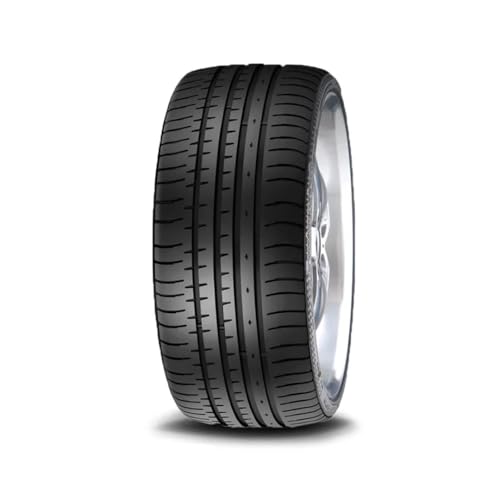
![Performance (The Criterion Collection) [Blu-ray]](https://m.media-amazon.com/images/I/41fnOVHHSrL.jpg)
